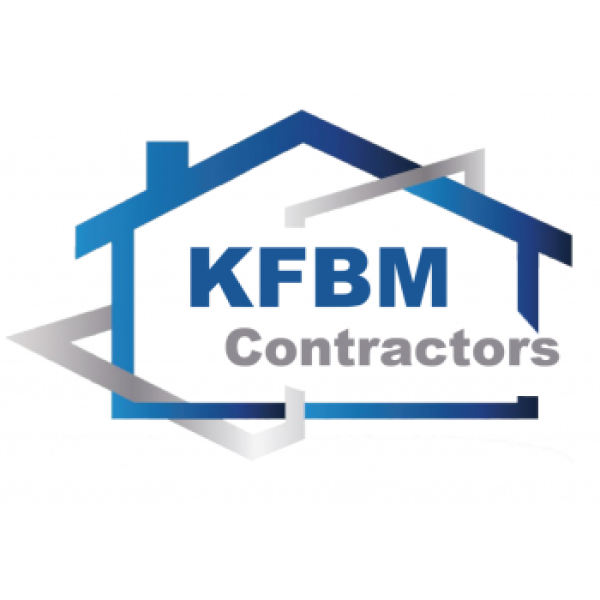Garage Conversions in Tiverton
Welcome to MAG Developments SW Ltd, your trusted partner for exceptional building and renovation services in Derriford and thro... read more »
Hysmark Ltd is a trusted UK-based company specializing in high-quality residential construction, maintenance, and refurbishment. With ye... read more »
Welcome to Torquay Builders Ltd, your go-to experts for all building and home improvement services in Torquay... read more »
Welcome to KFBM Contractors, your go-to experts for all your building and renovation needs in Plymouth and across Devon. With a wealth of... read more »
Welcome to JVB Building, your go-to experts for all things construction in Seaton and across Dev... read more »
Welcome to RB Building and Plumbing Services, your trusted partner for all building and plumbing needs in Great Torrington and across Dev... read more »
Welcome to Shire Property, your trusted partner for all building and renovation needs in Taddiport and across Devon. Specialising in Buil... read more »
Welcome to The Fixers, your premier choice for expert tradespeople services in Okehampton and throughout Devon. Specialising in a compreh... read more »
Mark Lace Ltd: Leading Builders in Appledore, Devon
Welcome to Mark Lace Ltd, your go-to builders in the picture... read more »
BB Traditional Builders Ltd is your... read more »
Welcome to Arteaga Carpentry & Builder, your trusted... read more »
Edwards Developments S.W Ltd: Premier Builder... read more »
Cattell Construction Ltd is a reputa... read more »
Welcome to Garnett Plastering and Building, your trus... read more »
Welcome to GC Builders, your trusted partner for all... read more »
Carl Rice Plastering, based in the b... read more »
Welcome to DC Property Services, your go-to solution... read more »
Welcome to Cleathero Construction, your trusted partn... read more »
Search Garage Conversions in places nearby
- Garage Conversions in Ashburton
- Garage Conversions in Axminster
- Garage Conversions in Barnstaple
- Garage Conversions in Bideford
- Garage Conversions in Buckfastleigh
- Garage Conversions in Budleigh Salterton
- Garage Conversions in Crediton
- Garage Conversions in Dartmouth
- Garage Conversions in Dawlish
- Garage Conversions in Exeter
- Garage Conversions in Exmouth
- Garage Conversions in Great Torrington
- Garage Conversions in Higher Dunstone
- Garage Conversions in Holsworthy
- Garage Conversions in Honiton
- Garage Conversions in Ilfracombe
- Garage Conversions in Ivybridge
- Garage Conversions in Kingsbridge
- Garage Conversions in Lynton
- Garage Conversions in Newton Abbot
- Garage Conversions in Northam
- Garage Conversions in Okehampton
- Garage Conversions in Ottery St Mary
- Garage Conversions in Paignton
- Garage Conversions in Plymouth
- Garage Conversions in Salcombe
- Garage Conversions in Seaton
- Garage Conversions in Sidmouth
- Garage Conversions in South Molton
- Garage Conversions in Tavistock
- Garage Conversions in Teignmouth
- Garage Conversions in Torquay
- Garage Conversions in Totnes
- Garage Conversions in Wotton Cross
Understanding Garage Conversions in Tiverton
Garage conversions in Tiverton have become increasingly popular as homeowners seek to maximise their living space without the hassle of moving. Whether you're looking to create an additional bedroom, a home office, or a playroom, converting your garage can be a cost-effective and efficient solution. This article will guide you through the process, benefits, and considerations of garage conversions in Tiverton.
The Benefits of Garage Conversions
Garage conversions offer numerous advantages. Firstly, they increase the usable space in your home, which can be particularly beneficial for growing families or those needing a dedicated workspace. Additionally, a well-executed conversion can significantly boost your property's value, making it an attractive investment. Moreover, converting a garage is often more affordable than building an extension, as the basic structure is already in place.
Cost-Effectiveness
One of the primary benefits of garage conversions is their cost-effectiveness. Since the structure already exists, you save on the costs associated with building from scratch. This can make a garage conversion a more budget-friendly option compared to other home improvement projects.
Increased Property Value
A garage conversion can add significant value to your property. By transforming an underutilised space into a functional room, you enhance the overall appeal and marketability of your home. This can be particularly advantageous if you plan to sell your property in the future.
Planning Permission and Regulations
Before embarking on a garage conversion in Tiverton, it's essential to understand the planning permission and building regulations involved. While some conversions may not require planning permission, it's crucial to check with the local council to ensure compliance with all regulations.
When Planning Permission is Required
In some cases, planning permission may be necessary, especially if the conversion involves significant structural changes or if your property is in a conservation area. It's always best to consult with the local planning authority to determine if permission is needed for your specific project.
Building Regulations
Regardless of whether planning permission is required, all garage conversions must comply with building regulations. These regulations ensure that the conversion is safe, energy-efficient, and suitable for habitation. Key areas covered by building regulations include structural integrity, fire safety, insulation, and ventilation.
Design Considerations for Garage Conversions
Designing a garage conversion requires careful planning to ensure the new space meets your needs and complements the existing structure. Considerations include layout, lighting, insulation, and access.
Layout and Functionality
The layout of your garage conversion should be tailored to its intended use. For example, a home office may require built-in storage and desk space, while a playroom might benefit from open floor space and durable flooring. Consider how the space will be used and plan the layout accordingly.
Lighting and Insulation
Proper lighting and insulation are crucial for creating a comfortable and functional space. Natural light can be maximised by adding windows or skylights, while adequate insulation will ensure the room is energy-efficient and comfortable year-round.
Choosing the Right Professionals
Hiring the right professionals is key to a successful garage conversion. From architects and builders to electricians and plumbers, each plays a vital role in transforming your garage into a usable space.
Architects and Designers
An architect or designer can help you plan the layout and design of your conversion, ensuring it meets your needs and complies with regulations. They can also provide valuable insights into maximising space and enhancing the overall aesthetic.
Builders and Contractors
Experienced builders and contractors are essential for executing the conversion. They will handle the construction work, ensuring the project is completed to a high standard and within the agreed timeframe.
Common Challenges and Solutions
While garage conversions offer many benefits, they can also present challenges. Common issues include limited space, structural constraints, and budget overruns. However, with careful planning and the right approach, these challenges can be overcome.
Maximising Space
Limited space is a common challenge in garage conversions. To maximise space, consider built-in storage solutions, multi-functional furniture, and clever design techniques such as open shelving and fold-away desks.
Addressing Structural Constraints
Structural constraints, such as low ceilings or awkward layouts, can be addressed with creative design solutions. For example, raising the roof or incorporating mezzanine levels can add height and interest to the space.
Case Studies of Successful Garage Conversions
Examining case studies of successful garage conversions can provide inspiration and insights into what is possible. These examples showcase a range of designs and uses, from cosy guest rooms to sleek home offices.
Transforming a Single Garage into a Home Office
One successful case involved converting a single garage into a modern home office. The project included adding large windows for natural light, installing built-in storage, and using neutral colours to create a calm and productive environment.
Creating a Multi-Functional Family Room
Another example is a garage conversion that became a multi-functional family room. This space was designed to accommodate a play area for children, a small home gym, and a cosy seating area for family movie nights.
Environmental Considerations
Garage conversions can also be an opportunity to incorporate environmentally friendly features. From energy-efficient insulation to sustainable materials, there are many ways to make your conversion eco-friendly.
Energy Efficiency
Improving energy efficiency is a key consideration in garage conversions. This can be achieved through high-quality insulation, double-glazed windows, and energy-efficient lighting and heating systems.
Sustainable Materials
Using sustainable materials, such as reclaimed wood or eco-friendly paint, can reduce the environmental impact of your conversion. These materials are not only better for the environment but can also add unique character to your space.
Financing Your Garage Conversion
Financing a garage conversion can be a significant consideration for homeowners. Understanding the costs involved and exploring financing options can help make the project more affordable.
Estimating Costs
The cost of a garage conversion can vary depending on factors such as size, design, and location. On average, homeowners can expect to spend between £10,000 and £20,000. It's important to obtain detailed quotes from contractors to ensure accurate budgeting.
Exploring Financing Options
There are several financing options available for garage conversions, including personal loans, home improvement loans, and remortgaging. It's important to explore these options and choose the one that best suits your financial situation.
Frequently Asked Questions
What is the average cost of a garage conversion in Tiverton?
The average cost of a garage conversion in Tiverton ranges from £10,000 to £20,000, depending on the size and complexity of the project.
Do I need planning permission for a garage conversion?
Planning permission may not be required for all garage conversions, but it's essential to check with the local council to ensure compliance with regulations.
How long does a garage conversion take?
The duration of a garage conversion can vary, but most projects are completed within 4 to 6 weeks, depending on the scope of work.
Can I convert a detached garage?
Yes, detached garages can be converted, but additional considerations such as access and utilities may need to be addressed.
Will a garage conversion add value to my home?
Yes, a well-executed garage conversion can add significant value to your home by increasing its usable space and appeal.
What are the building regulations for garage conversions?
Building regulations for garage conversions cover areas such as structural integrity, fire safety, insulation, and ventilation. Compliance is essential for a safe and habitable space.
Garage conversions in Tiverton offer a fantastic opportunity to enhance your living space and add value to your home. By understanding the process, benefits, and considerations involved, you can make informed decisions and create a space that meets your needs and lifestyle. Whether you're looking to create a cosy guest room, a functional home office, or a vibrant playroom, a garage conversion can be a rewarding and worthwhile investment.
Send a message















